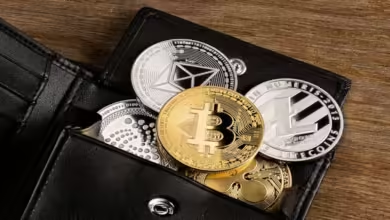Vodafone Expands Blockchain Technology with SIM-Card Integrated Crypto Wallets

Vodafone, a top telecommunications company from the United Kingdom, is actively working on integrating cryptocurrency wallets into their subscriber identity module (SIM) cards. This project focuses on using mobile phones as main channels for digital applications and commerce.
David Palmer, the Blockchain Lead at Vodafone and CPO of PairPoint, recently highlighted the company’s blockchain goals. “With around 8 billion mobile phones expected to be in use by 2023, we are concentrating on improving the mobile experience by incorporating blockchain technology to smoothly handle crypto transactions,” Palmer stated in an interview with Yahoo Finance Future Focus.
Financial Strategy and Partnerships
The initiative to integrate blockchain coincides with Vodafone’s financial strategy, which includes securing a total of $2.9 billion in debt through loans amounting to $1.8 billion. These actions are part of a larger financial effort involving various partnerships and financial maneuverings.
Vodafone Idea Ltd. is a distinct company operating in India, with Vodafone Group owning a 45% share. Vodafone has also formed a 10year strategic alliance with Microsoft to introduce advanced generative AI services for their customers. This move demonstrates Vodafone’s dedication to using new technologies to better customer service and increase operational effectiveness.
Blockchain and Cryptography on SIM Cards
- Palmer highlighted that SIM cards are now being combined with digital identities and blockchain technology, making use of the existing cryptography.
- Vodafone expects that by 2030 there will be about 5.6 billion blockchain based digital wallets, which could serve nearly 70% of all people worldwide.
- The adoption of public blockchains like Ethereum boosts transaction security and speed, important for maintaining high quality service and mainstream financial services despite regulatory and sanction related challenges.
Palmer emphasized the innovative Pair Point Digital Asset Broker (DAB) platform, which supports transactions on both public and private blockchains. This platform acts as an intermediary for businesses needing to write to a public blockchain, providing secure and recorded transactions.
Impact on IoT and Future Technologies
Blockchain technology assists financial transactions and also applies to Internet of Things (IoT) devices. These devices carry digital identity passports in their SIM cards, enabling them to autonomously conduct transactions like an autonomous vehicle paying for charging services.
Nevertheless, protecting these digital wallets from cyber threats is essential, as they are attractive targets for hackers. This concern was discussed in Vodafone’s collaborative proof of concept with various global entities. Global firms are focusing on improving security and how well systems work together in international trade.
These devices can function on their own, carrying out micropayment transactions directly with each other without needing people. This is a big step forward in the daily use of technology. The benefits for how easy and efficient this makes things for consumers are significant, showing us what a future filled with safe and always present digital transactions might look like.
Looking Ahead
Vodafone’s decision to merge blockchain technology with mobile phone systems shows its dedication to new ideas and its ability to see ahead to the rapid growth of digital wallets. As this technology develops, Vodafone continues to lead into a future where every mobile phone user has access to secure and effective services based on blockchain. With careful investments and cooperative efforts, Vodafone aims to keep leading in the telecommunications industry by advancing technology. Elements that change the mobile experience for users all around the world.





